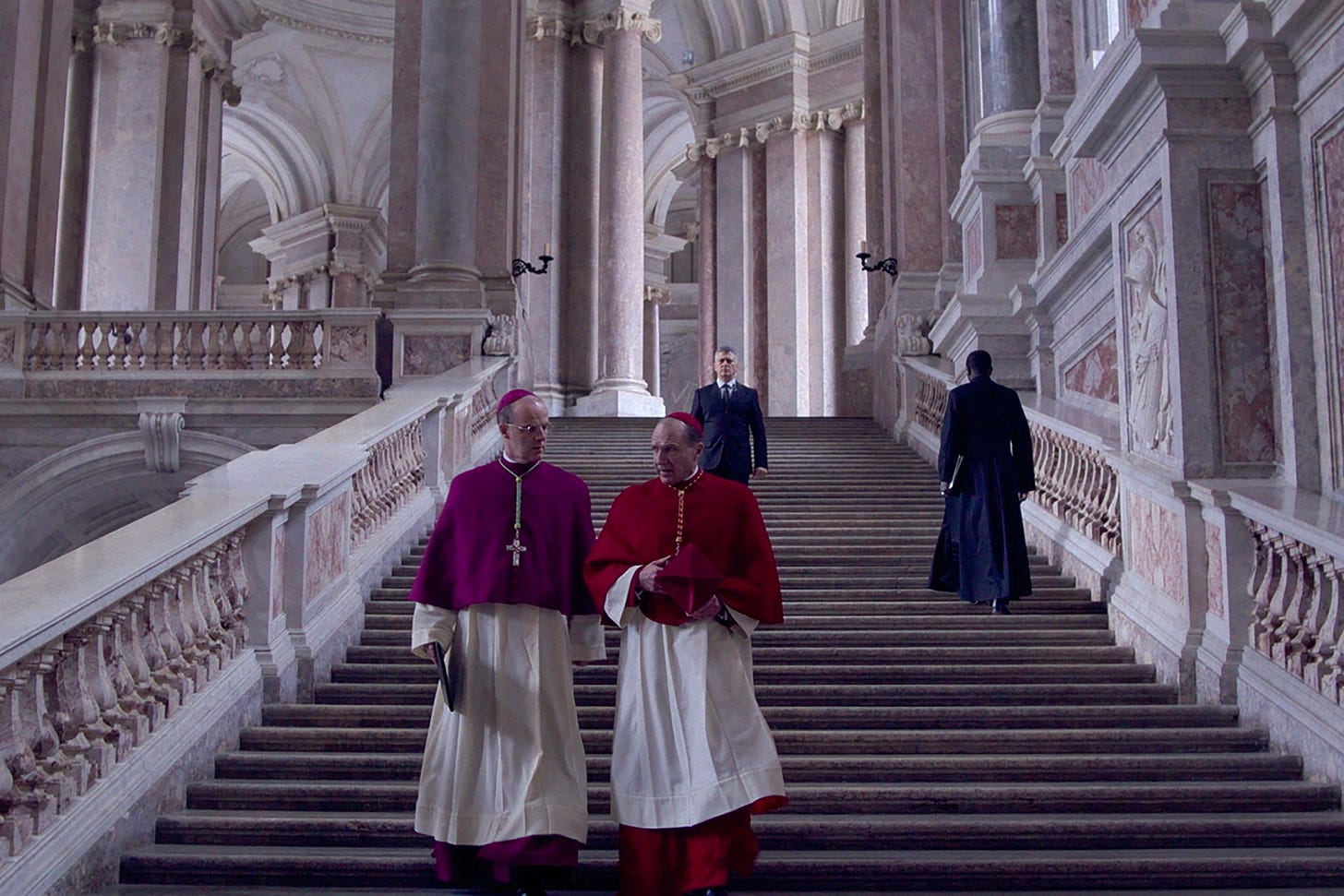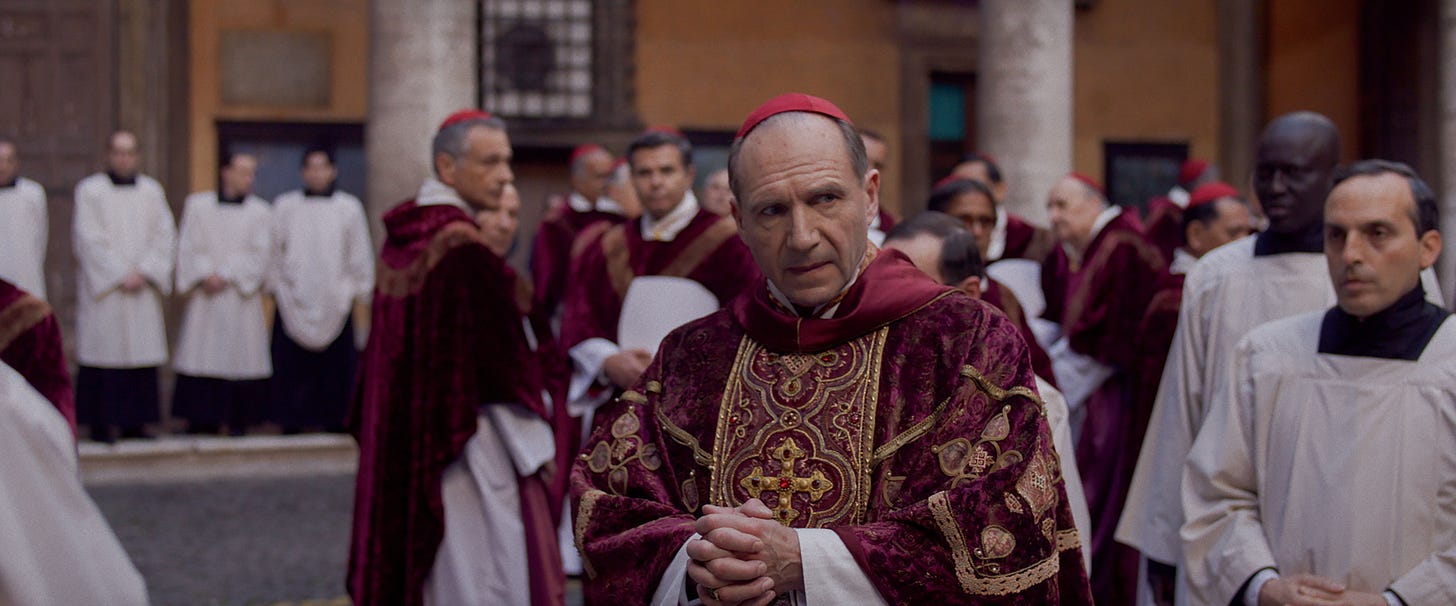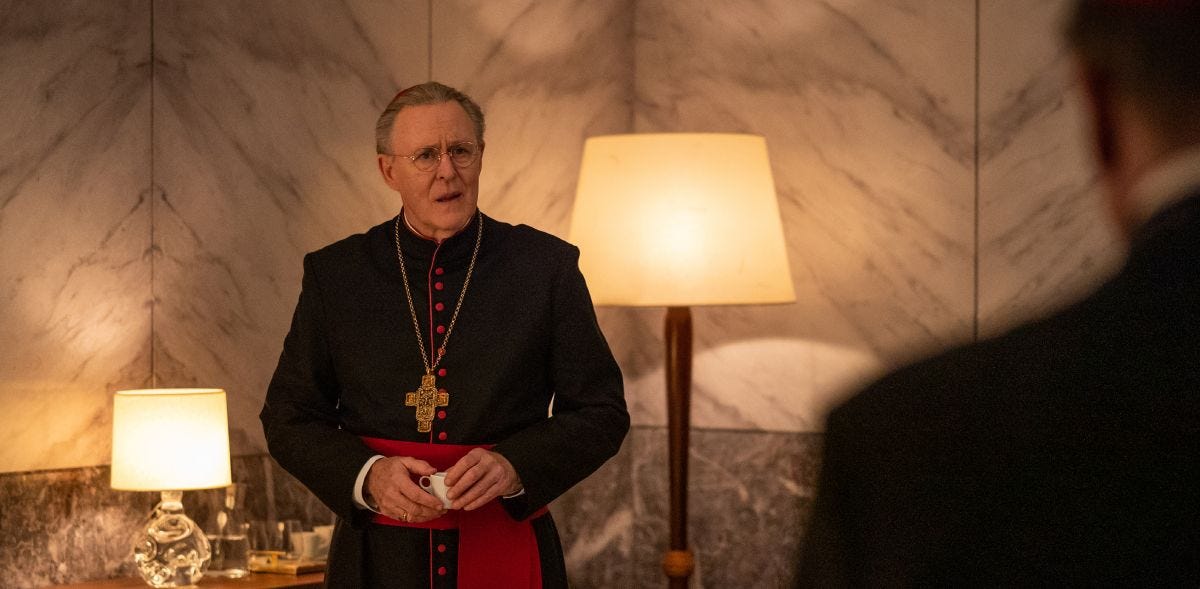Conclave
Faith, power, seclusion, and elections...
The papal conclave is notorious for its seclusion - cardinals from around the world are locked in the Sistine Chapel until a new pope is elected. But how far should that seclusion extend when electing a new faith leader? What can we overlook about a candidate’s flaws? How much can we ignore the outside world? While Conclave doesn’t provide easy answers, it brilliantly explores those very questions.
CONCLAVE follows one of the world’s most secretive and ancient events – selecting the new Pope. Cardinal Lawrence (Ralph Fiennes) is tasked with running this covert process after the unexpected death of the beloved Pope. Once the Catholic Church’s most powerful leaders have gathered from around the world and are locked together in the Vatican halls, Lawrence uncovers a trail of deep secrets left in the dead Pope’s wake, secrets which could shake the foundations of the Church.

Conclave’s visual language is much less flashy than director Edward Berger’s previous film, All Quiet on the Western Front. That said, I found the cinematography to be effective in its simplicity, rarely calling attention to itself (though a few glorious shots left me breathless). And even when the shot designs themselves were inconspicuous, the meticulous Vatican set recreations were more than enough to impress.
Unlike the visuals, the film’s soundscape is overt, with an energetic musical score and noticeably effective sound mixing. Quiet, “talky” films like this rarely use sound to their advantage, but Conclave calls attention to every creaking door, folded paper, and echoing footstep, adding tension to the simplest of actions.
Ralph Fiennes delivers quite possibly my favorite performance of the year as Cardinal Lawrence. At first glance he acts merely as an audience surrogate, but as the film progresses we peel back layer after layer of his conflicted character. Faithful, yet doubting. Earnest, yet hypocritical. Naive, yet untrusting. Impartial, yet revealing his biases.
Cardinal Lawrence continues to uncover misdeed after misdeed as the Conclave goes on, and Fiennes brilliantly and subtly shows Lawrence’s internal debate about how much he should interfere in the process. He repeatedly states that he cannot allow outside information to influence the election, but should he really keep the cardinals in the dark about the shocking revelations he discovers?
"For God will bring every deed into judgment, including every hidden thing, whether it is good or evil."
- Ecclesiastes 12:14

His conflicted characterization compliments the film’s themes as a whole, showcasing both the systemic flaws and human depravities evident in any sort of electoral process. There’s a running saying in the film that “every cardinal thinks they should be pope,” and we see that proven true time and time again, each cardinal hungry for power (often with good intentions!), but oblivious to their own flaws.
"We may think we are doing the right thing, but the Lord always knows what is in our hearts.”
- Proverbs 21:2
“This is a war, and you have to commit to a side,” Cardinal Bellini (Stanley Tucci) snaps at Cardinal Lawrence, with Lawrence later asking, “Is this what we’re reduced to? Considering the least worst option?” It’s a chilling exchange for Americans like me who have been inundated with seemingly endless news and arguments about the coming election, and even more so considering these cardinals are discussing the election of a faith leader.
But beyond its examination of electoral processes, Conclave is an equally fascinating evaluation of faith, or more specifically, religious organizations. In fact, the film is never critical of faith itself, but of its saddening deformities and misuses in the Church. We’re shown the sacred pageantry that occurs during the conclave, but it feels empty, or often even sacrilegious given the characters’ hearts and actions.
In one humorous moment early on, a cardinal opens his dinner prayer with a typical Latin mealtime recitation, and the other cardinals all hurry to sit down as soon as he finishes the “expected” words, only to realize the cardinal has continued praying, now speaking from the heart.
This all leads us to see what’s strikingly missing from most moments in Conclave: God. And His absence speaks loudly. Cardinals consult with one another about who the right choice is, they ask themselves what the past pope would have wanted, they consider what would most benefit Catholics around the world…but never what God wants of them.
The film provides a fair and honest look at all spectrums of Catholic belief, but it seems that no matter how “liberal” or “traditional” the cardinals in the film are, they have all forgotten the words of James 1:5 –"If any of you lacks wisdom, let him ask of God, who gives to all liberally and without reproach, and it will be given to him."
While I’m not quite sure how I feel about the film’s final moments (is it one twist too many, or a good culmination of the film’s themes?), Conclave is a both a tense, exciting watch and a deeply impactful examination of religion, human nature, and systems of power. It’s one of my favorite films about faith, and one of the best films of 2024.


